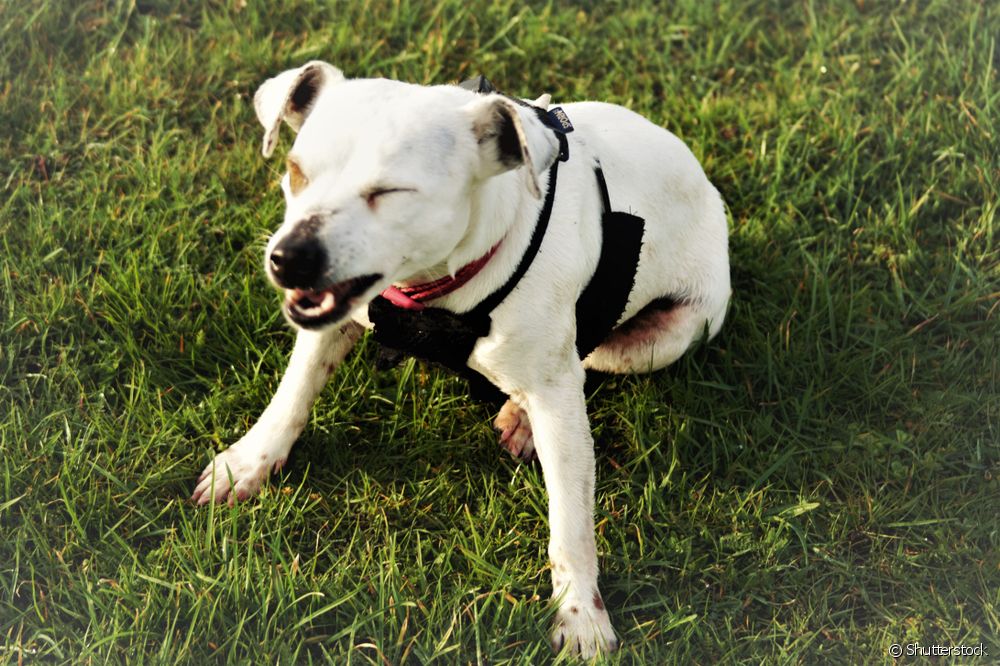Sneezing dog: when should I worry?

Table of contents
The pet parent who has never thought it was cute to see their dog sneeze should throw the first stone! Even though it's cute and in most cases harmless, the frequency of your pet's sneezing can be a sign that should get your attention. Just like with humans, sneezing can be your dog's body's reaction to a number of things and you need to know which ones to look out for.So, we've put together everything you need to know about dog sneezing to ensure you get the best care for your friend when they need it.
Dog sneezing from time to time: in these cases, there is no need for concern
The first thing you need to pay attention to when you notice that your dog is sneezing and may need help is the frequency at which the sneezes happen. If they are rare in your friend's daily life, chances are that he is just trying to expel some foreign body that got in there: the cause may be a little dust, a little piece of grass, a small insect that came along with itsniffing to recognize a new path... anything that might cause discomfort to the animal's nostril region.
See_also: Scabies in dogs: how to treat and what are the symptoms of the disease?
Dog sneezing a lot: what can it be?
When the sneezing happens more frequently, with short intervals between each other and for more than a whole day, a visit to the vet is indispensable. In addition, it is worth keeping an eye on the animal's behavior to try to notice any other symptoms that may help the professional diagnose what your friend has.
A dog with a runny nose and sneezing, for example, may have canine influenza, which is also known as kennel cough. It has very similar symptoms to human influenza - including nasal discharge - and can be caused by a virus or bacteria. A dog sneezing blood, on the other hand, may have the condition caused by inflammation of the gums or tract.In addition, the expulsion of blood can also be caused by a benign tumor in the dog's nostrils.
Lastly, allergic sneezing, which is caused by an asset that bothers the animal. The allergen can be anything from a very strong smell (common to cleaning products and chemicals, such as acetone) to dust, mites and pollen. In other words: be aware of the environments that the animal has frequented to try to identify what is the trigger of the situation.
Sneezing dog: home remedy may not be the best solution
It doesn't matter if the sneezing is caused by canine flu or by an allergy: as soon as you notice that the animal is sneezing a lot, the ideal is to ask your trusted veterinarian for help and not to medicate the animal without a prescription. When the situation is caused by a recurrent allergy and you already have a prescription medication as a guideline for the moments of crisis, it's okay, the animal can be medicated without a prescription.In any other case, it is best to have your friend examined and diagnosed before taking any medication that may or may not cooperate in improving the sneezing condition.
See_also: Queen Elizabeth II's dog: Corgi was the monarch's favorite breed. See photos!Reverse sneezing in dogs: know what it is and how to identify it in your friend
If in a normal sneeze your dog puts the air out, in a reverse sneeze, as the name implies, he pulls the air into his body through his nostrils - and no, it doesn't sound like normal breathing. He makes a sound like a muffled cough at this point. The causes of reverse sneezing are similar to that of the common sneeze and it is more common in brachycephalic dogs, which have the brachycephalic nose.anatomy of the snout and differentiated airways.

